The 2021 Specialized Epic Comp delivers a fast, reliable ride that feels at home on the racecourse and the trails. The BRAIN suspension works brilliantly, and the updated geometry makes it extremely capable. However, despite the Comp being the cheapest Epic model in the range, it's still at a price point that makes it unaffordable to some, despite the more basic componentry.
- Merida Ninety-Six RC 9000 review
- Boardman MTR 8.9 review
- 2021 Specialized Rockhopper Expert 29 review
There are 4 models in the updated 2021 Epic lineup, with this Comp and then the Expert (£6,750), Pro (£8,250) and S-Works (£11,500). The Specialized Epic is not to be confused with the Specialized Epic EVO, which uses a different frameset and slightly longer travel. The Epic has been in the range for almost 20 years featuring the BRAIN, a rear suspension system that uses an inertia valve to automatically open and close the suspension based on trail bumps. The suspension system attempts to mimic a hardtail while climbing but automatically switching to a full suspension feel when heading downhill.
The Specialized BRAIN
Does the BRAIN work? It does, and you can really feel when it is working beneath you too. On initial rides, the thump of the BRAIN initialising and allowing suspension travel can feel odd, almost as if you are bottoming out the shock's travel with noticeable noise and feel. But while it is apparent, it is also very effective working, as you might expect and hope, firming up the rear suspension when the conditions are not too rough underneath.
The BRAIN fade settings can be run in 5 different positions, changed via an easy to access knob near the rear axle with settings from Firm to Soft. The softest setting that means fluid bypasses the BRAIN system, essentially turning it off. In this setting, there is a noticeable bob when pedalling, especially on the climbs, but the platform still feels fairly firm and this is a good setting when out on a more casual ride.
For races or when pushing the pace, I expect the firmest setting will be the most popular and it was the setting I found myself using the most, still giving travel when needed but maintaining a firm platform when climbing and riding on smoother terrain.
The adjustable BRAIN settings could be a useful option for riders who like racing and general trail riding with ease of adjustment, meaning you can flip the settings without the need to grab a shock pump.
The Specialized Epic Frame
All framesets within the 2021 Specialized Epic lineup feature a full carbon build with the exception of the S-Works version, which features what Specialized call '11m layup'. Claimed frameset weight is 1,947g (4lb 4oz), so there is the potential to build a very light overall build. That is not, however, a word that I would use to describe the Epic Comp, weighing 11.82kg (26lb, 1oz) without pedals and with tubes installed. For a bike that retails at £4,500, it is hardly a headline figure. The S-Works version proves that a light build is possible with a claimed weight of sub 10kg (22lb).
Weight aside, there are some features that racers will undoubtedly love, including the ability to hold two bottles on all frame sizes except the XS. This feature is especially key for longer marathon-style events. The frameset has internal cable routing to run a dropper seatpost, which doesn't come as standard, and that's a shame as cross-country races are becoming more technically demanding.
The frame features a slim RockShox-Specialized BRAIN shock, with Rx XC tune with rebound compression damping on the unit and the adjustable BRAIN Fade settings near the axle. Service intervals are reasonable on the unit and increased for this version to 125-hours.
One feature lacking that some competitor brands have is a fork stop on the downtube that would help prevent any damage to the top tube should the bars twist round. Anyone running in a typical, aggressive position will run the risk of the brake levers and shifters knocking on the top tube in the event of an accident or the bars twisting round.
Specialized Epic Geometry
Specialized are pushing the Epic into new territories, aiming to keep up with the changing trends of cross-country racing with more technical courses at an international level. The head angle is reasonably slack 67.5-degrees, which is slacker than most other similar frames, including the recently tested Merida Ninety-Six RC 9000, which has a 68.5-degree head angle. While other competitors, such as the Giant Anthem PRO 29, boasts a steeper 69-degree head angle. However, it isn't all about the head angle when a longer reach and shorter stem is used; 70mm chosen for the medium size bike tested.
The seat tube angle is reasonably steep, 75.5-degrees on our medium size, and this puts you in an upright and efficient position when climbing.
The geometry certainly offers a confident position for the downhills. My personal experience achieved near personal best times on a local circuit with a long descent that I have ridden over 200 times. It feels stable at speed but can still tackle tighter turns, comfortable to be lent over into corners and not too scary in the air. Descending would be further improved if a dropper post was equipped, and I think for racing on technical cross-country courses or general trail riding, many riders would welcome this upgrade.
I had frequent problems with knocking the pedals on the ground, especially in races and faster rides. While crank length is a personal preference to a point, why Specialized has chosen to spec 175mm crank arms to a medium-size bike designed to tackle technical tracks that are already low baffles me.
The Epic Comp's Drivetrain & Brakes
The Epic Comp is fitted with a full Shimano SLX 12-speed drivetrain, which is hard to fault in terms of value and performance. At the price point of the Epic Comp, there are a few brands that offer an XT drivetrain, where the biggest benefit is likely a weight reduction.
To some, it may seem to be a low level of component for the price point. However, this is now industry-wide and not simply Specialized alone with other well-regarded brands at a similar level of specification.
SLX performance is hard to fault with clean shifting, wide-range 10-51 cassette and 32 tooth chainset, which in my mind, is too small. It might suit general trail riding, but this is a bike aimed for racing, and I am surprised not to see at least a 34 tooth chainring fitted. It is, however, good to hear that there is clearance for a 38 tooth chainring for those like myself who love monster gear.
The brakes are also Shimano SLX with 180mm front and 160mm rear rotors, and this is a combination that felt completely adequate at all times and on all terrain.
The Epic Comp's Finish
If there is one area that I think is underwhelming for the Epic Comp, it is the finishing kit, with an own-brand alloy seatpost, stem and handlebar. While there is routing for a dropper post, no versions have one as standard. A basic and also a rather heavy alloy seatpost is fitted with a Specialized Power Comp saddle on top, which I found comfortable and suited to the style of bike. The short nose design gives a more central position with less ability to move around, which may seem like a downside, but I found the bike and saddle excellent for technical and steep climbing, with the steeper seat tube angle also a factor.
The handlebar is 750mm wide with a 10mm rise, and this will likely be wide enough for the cross-country, and marathon-style riding and racing the bike is designed for. It is another heavy item at 266g, and in an area of the sport where riders are obsessed by weight, something racers, in particular, may wish to change.
The overall bike weight of 11.82kg (without pedals) is not outstanding, with the components and especially the finishing kit being the main problem. A change of stem, bar and seatpost could net a 0.5kg (just over 1 lb) saving without spending a fortune, but it would be nice to see lighter components fitted as standard, given the bike is designed to be raced.
Specialized Epic Comp Fork
With all models above the Comp featuring the SID BRAIN fork, the Comp has a Rock Shox Reba RL with a little underwhelming performance. With pressure set up to minimise bob when climbing, it was less able to deal with smaller bumps. Even on larger rocks and landings, it wasn't able to give quality to the ride that mimics the rear.
You could perhaps lower the pressure to gain more movement, but in doing so, you would also change the characteristics of the bike, which is essentially designed to be raced.
The fork has a TwistLoc, which is accessed on the top of the right leg with multiple settings from fully open to fully locked. While fully locked is the most used option, I found a firm but not fully locked out option that was good for slightly technical climbs where a little give and movement helped maintain momentum. The lockout dial on the top of the fork leg means no cable, keeping the bars a little cleaner, but for race scenarios, the Epic is all about the BRAIN activated rear shock which works so effectively, so it is a shame not to have the same feature in the forks as all other models in the range have fitted.
The Wheel Set-up
The Epic Comp is fitted with a wheel build that includes Specialized alloy, tubeless-ready rims with a reasonably slim 25mm internal width, matched to Shimano MT400-B front and MT510-B rear hubs laced with DT Swiss Spokes. The complete package adds up in weight, and while the Shimano hubs will likely be reliable and durable, they do not deliver a light, snappy ride that you might hope for.
Specialized claim the 25mm internal rim width to be "modern", and if this was a gravel bike, it might be the case, but for a mountain bike, even a cross-country race bike running 2.3" tyres, this is far from modern. If there is one surprising feature on the wheels, it is the Specialized Fast Track 2BLISS 2.3" tyres with reinforced control casing that roll quickly and offer more grip than you might expect at first glance. On slippery or muddy terrain, the front tyre can get a little overwhelmed and slide, but general performance is still very good.
Is it Good Value?
At £4,500, some riders may expect a little more in return. However, compared to similar style bikes from other manufacturers, the price is reasonable, claiming the Specialized Epic Comp is value for money would be pushing it too far. The same price range would be the Trek Top Fuel 9.8, which also has a full carbon frame but a slightly different specification for £4,800. Scott is another brand synonymous with cross-country racing and the Spark RC 900 at £4,189, with both these competitors claiming the same 11.8kg overall weight. However, neither feature the BRAIN, and that is one aspect that stands the Epic out against the competition.
Overall
As an entry-level model for the Epic range of bikes, the Comp offers performance that stands out against others, with the BRAIN being the key factor. Some of the finishing kit is basic and heavy, the performance of the fork is disappointing at times, but overall the bike still succeeds at being a rapid bike that loves to be raced or simply ridden quickly, uphill as would be expected but also downhill with geometry that puts you in a position to really push the limits.












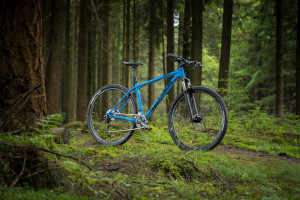

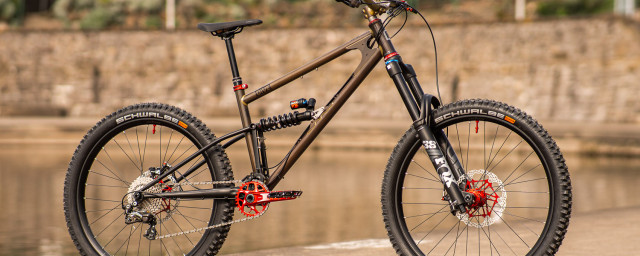
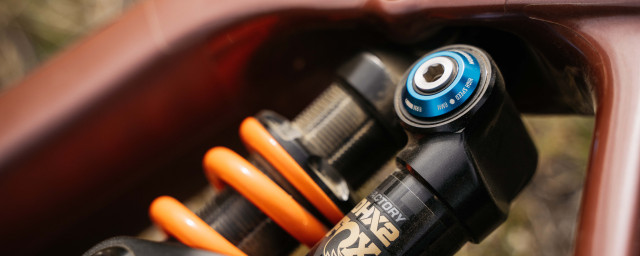

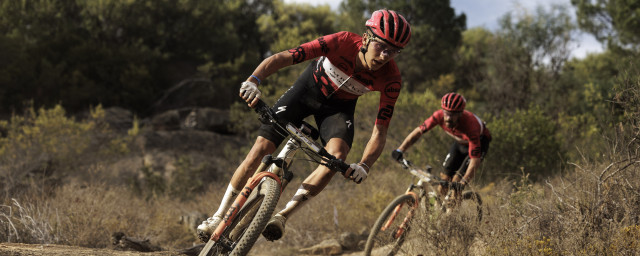


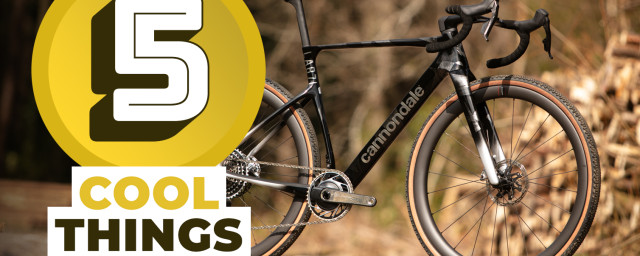
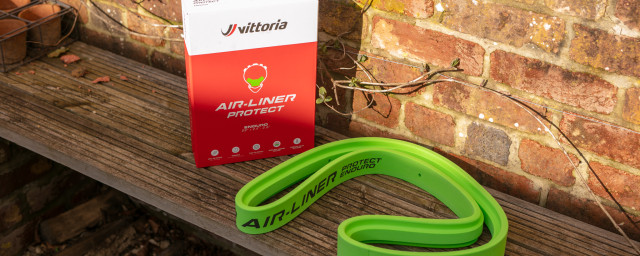
Add comment